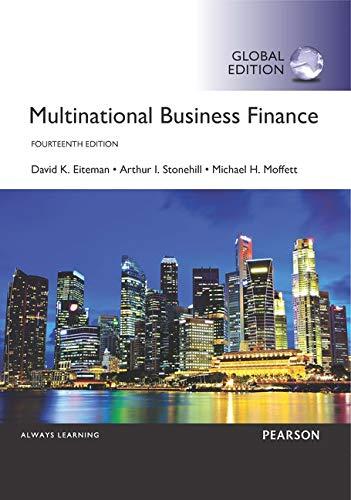The basic rule is to be there at the right moment, at the right place, to seize
Question:
The basic rule is to be there at the right moment, at the right place, to seize a promising opportunity in an environment guaranteeing sufficient longer-term growth.
—Bernard Arnault, Chairman and CEO, LVMH.
Patrick Thomas focused intently on not letting his hands shake as he quietly ended the call. He had been riding his bicycle in rural Auvergne, in south-central France, when his cell phone buzzed. He took a long deep breath and tried to think. He had spent most of his professional life working at Hermès International, SA and had assumed the position of CEO in 2006 after the retirement of Jean-Louis Dumas.
The first nonfamily CEO to run the company was now facing the biggest threat to the family-controlled company in its 173-year history.
The LVMH Position The man on the other end of the phone had been none other than Bernard Arnault, Chairman and CEO of LVMH (Moët Hennessy Louis Vuitton), the world’s largest luxury brand company, the richest man in France, and a major competitor. Arnault was calling to inform Thomas that LVMH would be announcing in two hours that they had acquired a 17.1% interest in Hermès. Thomas had simply not believed Arnault for the first few minutes, thinking it impossible that LVMH could have gained control of that significant a stake without his knowledge. Arnault assured Thomas it was no joke and that he looked forward to participating in the company’s continued success as a shareholder. Patrick Thomas began assessing the potential threat, if it was indeed a threat.
Hermès International. Hermès International, SA is a multibillion-dollar French company that makes and sells luxury goods across a number of different product categories including women’s and men’s apparel, watches, leather goods, jewelry, and perfume. Thierry Hermès, who was known for making the best saddles and harnesses in Paris, founded the company in 1837. The company’s reputation soared as it began to provide its high-end products to nobility throughout Europe, North Africa, Russia, Asia, and the Americas. As the years passed, the company began to expand its product line to include the finest leather bags and silk scarves on the market, all while passing the company down through generations and maintaining family control.
Despite going public in 1993, roughly 60 direct descendants of Thierry Hermès, comprising the 5th and 6th generations, still controlled approximately 73% of the company.
In 2006, the job of CEO was assumed, for the first time, by a nonfamily member, Patrick Thomas.
Bernard Arnault Arnault is a shrewd man. He has reviewed his portfolio and sees what he is missing—a company that still produces true luxury—and he is going after it.
—Anonymous luxury brand CEO speaking on the LVMH announcement.
Bernard Arnault had made a very profitable career out of his penchant for taking over vulnerable family-owned businesses (earning him the colorful nickname of “the wolf in cashmere”). Born in Roubaix, France, to an upper class........
Mini-Case Questions 1. Hermès International was a family-owned business for many years. Why did it then list its shares on a public market? What risks and rewards come from a public listing?
2. Bernard Arnault and LVMH acquired a large position in Hermès shares without anyone knowing. How did they do it and how did they avoid the French regulations requiring disclosure of such positions?
3. The Hermès family defended themselves by forming a holding company of their family shares. How will this work and how long do you think it will last?
Step by Step Answer:

Multinational Business Finance
ISBN: 9781292097879
14th Global Edition
Authors: David Eiteman, Arthur Stonehill, Michael Moffett





